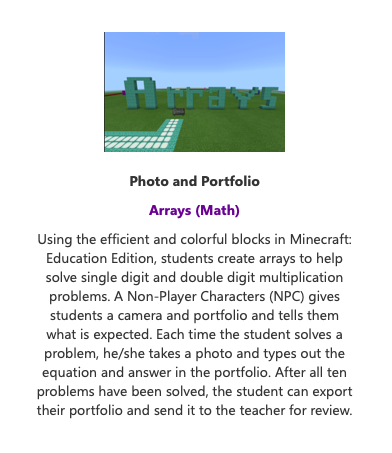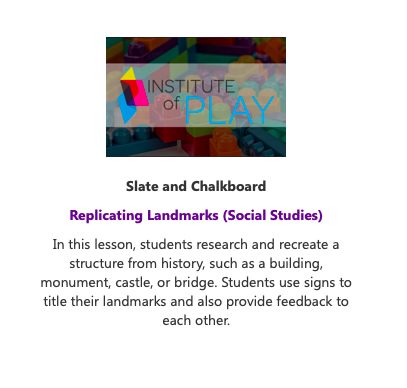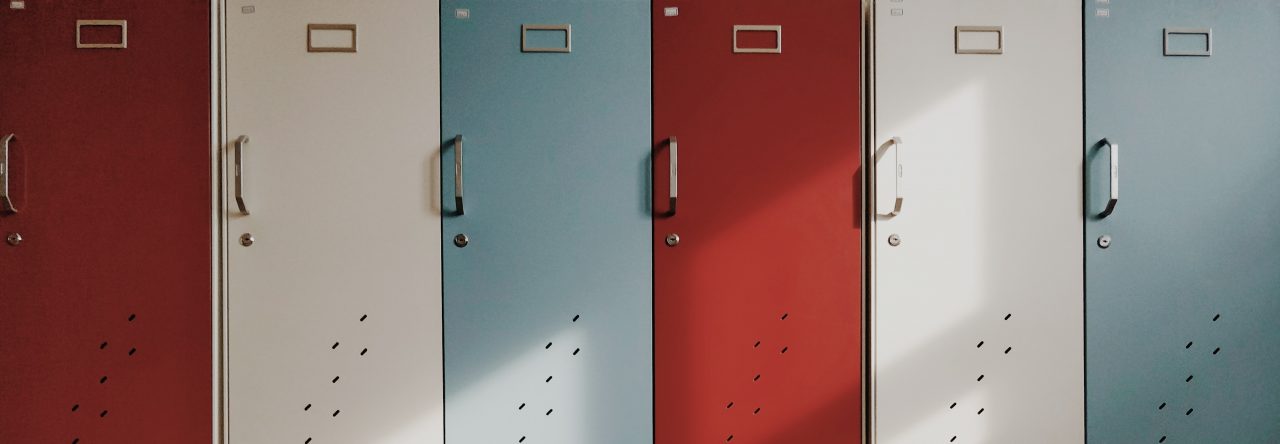I have been continuing to do research for my EdTech inquiry the last couple of weeks. One question that I was wondering about was how teachers can assess while incorporating Minecraft, as some projects/assignments with Minecraft require a tangible piece of paper to be handed in that shows their work, but in other cases how can we as educators assess learning?
I found an amazing lesson on MinecraftEdu’s Microsoft website that details all of the different ways educators can organize their assessment during Minecraft lessons:

Here are two examples of lessons that educators detail the ways they use Minecraft’s in-game tools to assess.

In this math lesson, the teacher suggests utilizing the portfolio tool for students to organize and export their work.

In this Social Studies lesson, students put all of their finished work along a timeline so everyone can see everyone’s work. This allows quick assessment on the teachers part, and peer assessment and feedback is also encouraged and accessible.
It is clear that there are many ways to organize assessment even when students are playing a video game like Minecraft, and this assessment seems as if it can take on much more interesting forms than traditional assessment!


